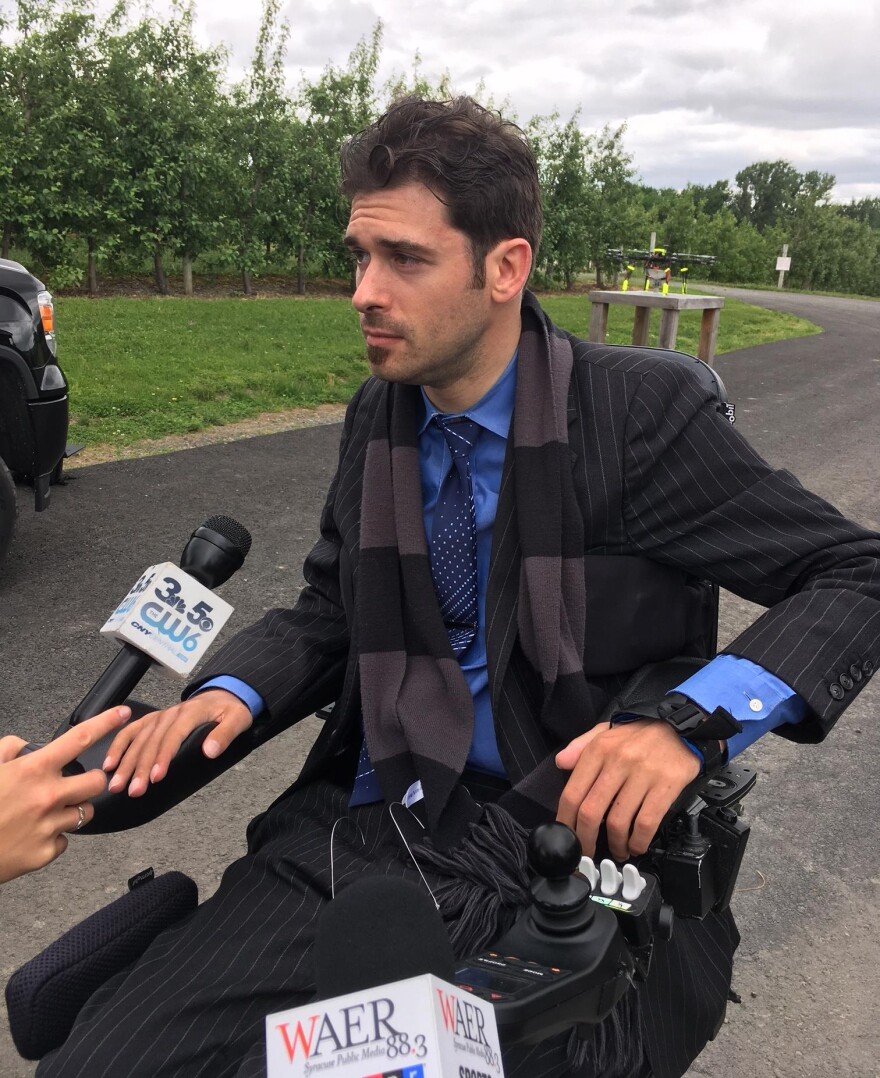History has been made at a 107-year-old apple orchard in Lafayette that teamed up with a drone technology company to help do what nature sometimes can’t. The pilot project is apparently the first time in the U.S. and maybe even the world that apple blossoms have been pollinated by drone.
It goes without saying that agriculture is heavily dependent on the weather, and nature. So when Beak and Skiff partner Peter Fleckenstein heard of a way to eliminate some of that uncertainty, he jumped at the chance.
"One less weather related event that I have to worry about every spring is are we going to have good bee work, is it going to be good bee weather."

He says Central New York’s fickle spring weather can mean short four-day window for the bees to do their work if it’s warm and sunny, like it was about two weeks ago when the blossoms opened. That window can be as long as two weeks if it’s cool and damp… but that means the bees might stay home.
"It's that small window. If you're in full bloom and you don't have good bee activity, what else can you do to make sure you have apples like this?" Fleckenstein said, referring to branches full of apple buds.
Enter Dropcopter. Adam Fine is a co-founder of the start-up from California. The team is part of the GENIUS NY business accelerator program based at the Syracuse Technology Garden.
"Bees have evolved to do this job. Trying to mimic bees is not something we can do exactly the same. What we do instead is we cropdust with the pollen."
It's a smaller, more targeted version of what Fine says were unsuccessful pollinating experiments with large aircraft in the 1970's and 80's. They wasted a lot of expensive pollen.

Dropcopter's business model revolves around automated pollination of orchard crops via unmanned aircraft, or drones.
"We're flying over the trees, dropping a lot of pollen all at once. We should be considered an event rather than a process, like the bee would be. Instead of the bees being out there for about two weeks, we're there and within an hour, we dust and we leave."
Fine and his team worked with Fleckenstein to choose five to seven acres of trees with multiple varieties of apples for the test. The drone then flew about 8 feet above the trees, going back and forth along the rows spreading the pollen. Fleckenstein sees the drone application complementing the roughly two tractor trailers of bees he brings in every spring. He says it would be easy to target some of their popular, lucrative varieties.
"If we want to say our Gala and our Honeycrisp must have apples or we will not have customers this year. So we will focus on those varieities. If the other varieites should have half a crop, we'll probably be OK. But the emerging varieties are the ones we really need to make sure have apples every year. That would warrant the extra cost of bringing in the drone."
A research firm will collect the data this fall to see just how effective it was. Fine is optimistic considering previous successes with cherries in Washington and almonds California. He says using innovative technology to grow apples and other food has big implications as the bee and other insect populations continue to struggle.
"When you look at your plate, it's important to know one-third of all that food was directly pollinated by insects. Which means if it doesn't get pollinated, we're not going to have it at market. You're not going to see it at home."



